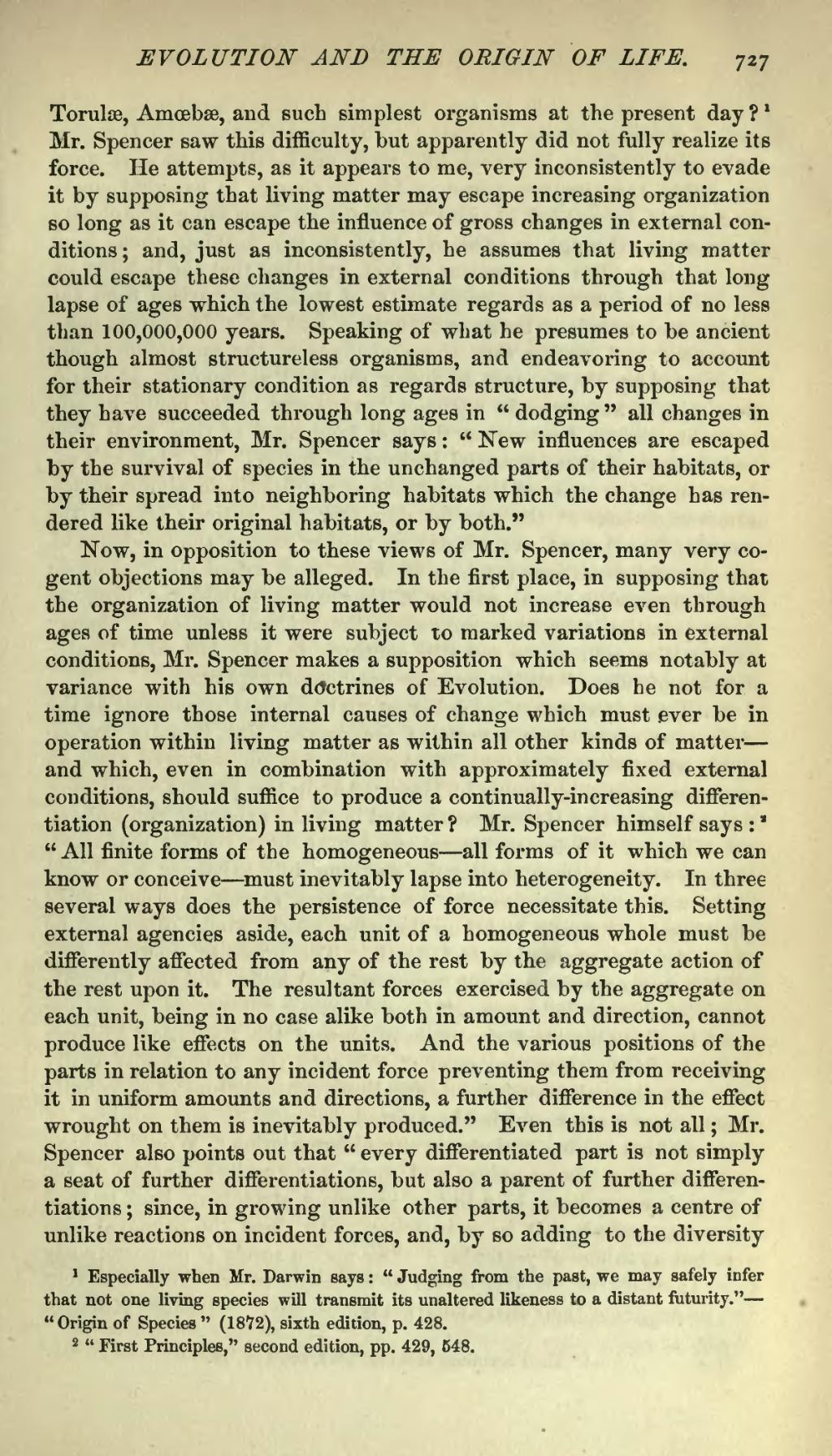Torulæ, Amœbæ, and such simplest organisms at the present day?[1] Mr. Spencer saw this difficulty, but apparently did not fully realize its force. He attempts, as it appears to me, very inconsistently to evade it by supposing that living matter may escape increasing organization so long as it can escape the influence of gross changes in external conditions; and, just as inconsistently, he assumes that living matter could escape these changes in external conditions through that long lapse of ages which the lowest estimate regards as a period of no less than 100,000,000 years. Speaking of what he presumes to be ancient though almost structureless organisms, and endeavoring to account for their stationary condition as regards structure, by supposing that they have succeeded through long ages in "dodging" all changes in their environment, Mr. Spencer says: "New influences are escaped by the survival of species in the unchanged parts of their habitats, or by their spread into neighboring habitats which the change has rendered like their original habitats, or by both."
Now, in opposition to these views of Mr. Spencer, many very cogent objections may be alleged. In the first place, in supposing that the organization of living matter would not increase even through ages of time unless it were subject to marked variations in external conditions, Mr. Spencer makes a supposition which seems notably at variance with his own doctrines of Evolution. Does he not for a time ignore those internal causes of change which must ever be in operation within living matter as within all other kinds of matter—and which, even in combination with approximately fixed external conditions, should suffice to produce a continually-increasing differentiation (organization) in living matter? Mr. Spencer himself says:[2] "All finite forms of the homogeneous—all forms of it which we can know or conceive—must inevitably lapse into heterogeneity. In three several ways does the persistence of force necessitate this. Setting external agencies aside, each unit of a homogeneous whole must be differently affected from any of the rest by the aggregate action of the rest upon it. The resultant forces exercised by the aggregate on each unit, being in no case alike both in amount and direction, cannot produce like effects on the units. And the various positions of the parts in relation to any incident force preventing them from receiving it in uniform amounts and directions, a further difference in the effect wrought on them is inevitably produced." Even this is not all; Mr. Spencer also points out that "every differentiated part is not simply a seat of further differentiations, but also a parent of further differentiations; since, in growing unlike other parts, it becomes a centre of unlike reactions on incident forces, and, by so adding to the diversity

